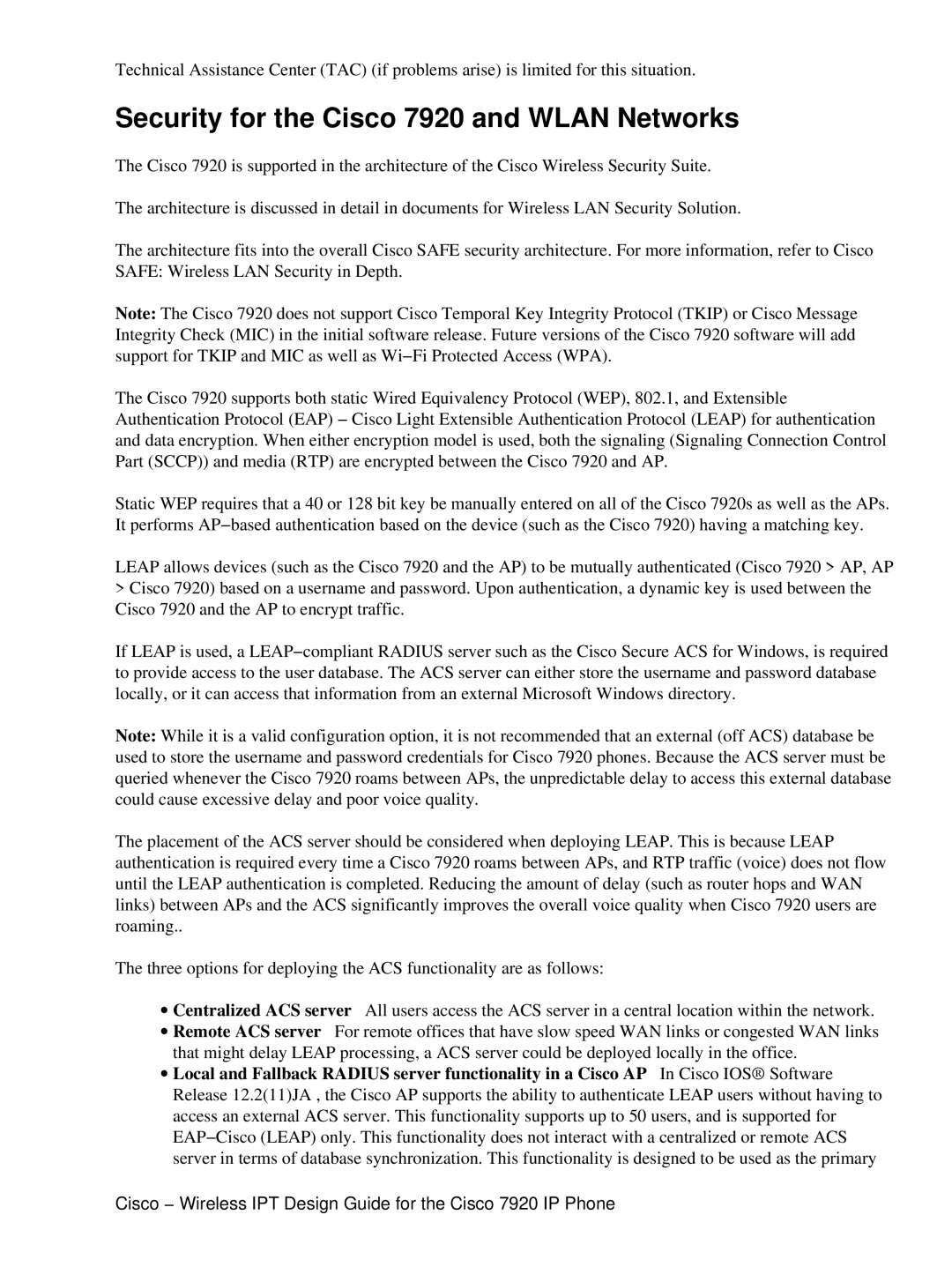7920 IP specifications
The Cisco Systems 7920 IP phone represents a significant advancement in wireless communication technology, designed specifically for enterprises that require mobility and efficiency in their communication systems. This versatile device integrates seamlessly into a Cisco IP telephony network, allowing users to maintain connectivity while on the move, which is essential in fast-paced business environments.One of the key features of the Cisco 7920 is its robust wireless capabilities. Operating on the IEEE 802.11b/g Wi-Fi standards, it provides a reliable connection to corporate networks, ensuring that users can access voice, data, and video services without being tethered to a desk. The phone supports dynamic call handling and features a responsive LCD display that enhances user interaction, making it easier to navigate menus and manage calls.
The Cisco 7920 also offers exceptional sound quality, thanks to its advanced audio technology. With Wideband audio support, users can experience clarity in conversations, which is particularly important in environments where clear communication is vital. The phone is equipped with noise-canceling capabilities that reduce background noise, allowing users to focus on their conversations without distractions.
Security is another critical aspect of the Cisco 7920. The device supports several security protocols, including WPA and WPA2, ensuring that all communications are encrypted and secure. This is crucial for organizations that handle sensitive information and need to comply with industry regulations.
Additionally, the Cisco 7920 features an extended battery life, enabling users to make calls throughout the day without frequent recharging. Its lightweight design and ergonomic build make it comfortable to use for extended periods.
In terms of integration, the Cisco 7920 IP phone is compatible with various Cisco Unified Communications Manager software versions, allowing for easy configuration and management within existing network infrastructures. Its support for multiple languages also makes it a suitable choice for international organizations, accommodating diverse user groups.
Overall, the Cisco Systems 7920 IP phone combines the necessary features, technologies, and characteristics to meet the demands of modern enterprise communication. Its blend of wireless capability, superior audio quality, security measures, and integration versatility makes it an excellent choice for organizations seeking efficient and reliable communication solutions.
